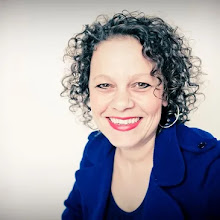It feels like an understatement to say we are in the midst of hard times. For so many people, 2020 has brought on one difficult life event after another. We are in the middle of a pandemic which has left the mental health of so many of us compromised. It is against this backdrop that video surfaced of an unarmed, hand-cuffed black man, George Floyd, having his life taken at the hands of a police officer. Floyd pleaded for his life for 8 minutes while indicating he could not breathe even as the life was squeezed out of him.
At nearly the same time, a video surfaced of a white woman, Amy Cooper, who called the police on a black man, Christian Cooper, whose only crime was to ask her to put her dog on a leash. She then proceeded to call 911 and tell them falsely that a black man was threatening her. She knew she had power, and she knew how to wield it to threaten Cooper. These are only two incidents that have highlighted problems with injustice and racism in our society. Sadly, it is a very long list.
Traumas like racism take their toll on people
I am not black, so I cannot know what it means to live in a black body in our society. But I understand enough about individual and collective trauma to know that longstanding injustices take their toll on people.
I was talking to a black friend of mine about George Floyd. She asked me if I had watched the video of his murder, and I said that it was too distressing for me to watch. I asked her in return if she had watched the video and she responded, "I haven't watched it. I am not going to. I have enough trauma." For me, watching the video would have been deeply upsetting, but for her it was traumatizing and likely would have triggered past racial trauma.
Stories of racism
I spoke with a black client this week who shared a conversation he had with a group of his old classmates about racism. One of his black friends was discussing the racist atmosphere in their high school. The non-black friend said something to the effect of "it wasn't that bad, you're exaggerating." My client was pretty shaken when he recounted the nooses that were left in the lockers of some black students, the threats to their lives--"you won't see the sun set on your black ass"--and numerous racial slurs. That was his experience, but it was not the experience of his non-black classmate, and she was surprised to learn that even though they were friends growing up in the same town and going to the same school, they had not experienced the same world.
I also had a friend who shared a story illustrating her experiences with racism in her own home. She is white and married to a black man. One day her husband, a dapper, gentle doctor, was standing in their driveway, and someone called the police on him because they thought he was not supposed to be there.
Still, there is hope for change
I have heard stories like that over and over from my clients. It hurts to know how common these experiences can be for Black Americans. But I am still hopeful because I also see people learning, asking questions, and trying to pursue justice. Sixty thousand people marched peacefully through the streets of Houston this week to remember George Floyd and to demand justice for him and so many others like him who have been denied justice. That gives me hope. It is a start, at least.Submission and open-heartedness are key to understanding
When it comes to people, I continue to commit myself to two principles The first principle is the idea of submission. I try to give up whatever preconceived notions I have about individuals and instead submit to the fact that they know their own experience best. I have to defer to them and their story in order to really understand them.The second principle is the idea of open-heartedness. I attempt to stay open to hearing a person's perspective even when I don't necessarily share their perspective or life experience. As a therapist, it's important for me not to project myself into their story, but instead to listen, empathize, and walk with them as they process their story and reach for change. I spoke more about this on a previous blog post.

Healing the world
There is a Jewish concept called Tickun Olam which refers to the idea that people should work for the healing of the world. I believe that is the work of therapy, as well: to work for the healing of each client.Menachem Mendel Schneerson said, "If you see what needs to be repaired and how to repair it, then you have found a piece of the world God has left for you to complete. But if you only see what is wrong and how ugly it is, then it is you that needs repair."
I hope that we can see what is ugly--both in our world and in our own minds--and still have the hope and resilience to work to repair that brokenness. It's not easy, but there is hope and joy if we let ourselves be a part of this process of healing.
If you have been struggling and need to talk to a counselor and begin the process of healing, please contact us at Wilson Counseling. We have Texas-based therapists who can meet with you virtually or in person.





Comments
Post a Comment